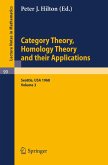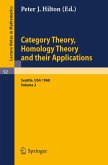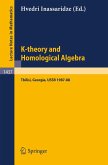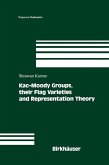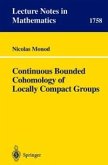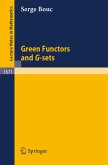Dieser Download kann aus rechtlichen Gründen nur mit Rechnungsadresse in A, B, BG, CY, CZ, D, DK, EW, E, FIN, F, GR, HR, H, IRL, I, LT, L, LR, M, NL, PL, P, R, S, SLO, SK ausgeliefert werden.
Most algebraic number theorists have had occasion to refer to Helmut Koch's Galloissche Theorie der p-Erweiterungen, first published some thirty years ago and still an essential reference on the subject of p-extensions (that is, Galois extensions whose Galois groups are p-groups) of algebraic number fields. But readers like myself have found ourselves hobbled by (a) the difficulty of finding a copy and (b) the inadequacy of our German reading skills.
No more. Thanks to Franz Lemmermeyer, here is Koch's Galois Theory of p-Extensions in English, supplemented by a "Postscript" that summarizes in a few pages what has happened since 1969. This new edition will keep Koch's work available for many years yet, and I'm sure many readers will be grateful that Springer has sprung for it.
"This book ... has been acclaimed as an excellent complement to J. P. Serre's 'Cohomologie galoisienne'. ... The monograph is devoted to the Galois theory of p-extensions on the basis of cohomological techniques. ... this classic can be recommended to any reader interested in this field." (G. Kowol, Monatshefte für Mathematik, Vol. 141 (2), 2004)
"This is an English translation (an excellent job by F. Lemmermeyer) of the German edition ... . Koch's clear and precise exposition may ... serve as an excellent guide to any newcomer. ... The goal is to compute the generators and relations of Gs, its cohomological dimension and to apply these results to the construction of infinite class field towers." (B. Kunyavskii, Zentralblatt MATH, Vol. 1023, 2003)
"First published in German in 1970 and translated into Russian in 1973, this classic now becomes available in English. ... The book demonstrates that the cohomology of groups is very useful for studying Galois theory of number fields; at the same time, it offers a down to earth introduction to the cohomological method." (L' EnseignementMathematique, Vol. 48 (3-4), 2002)



